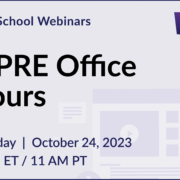Exactly How Difficult is the MPRE?
Exactly How Difficult is the MPRE?
In terms of exams encountered during law school or shortly after graduation, the MPRE is far from the most difficult. With that being said, it’s not a complete cakewalk. The MPRE has a common stigma of being an “easy” test that students don’t have to study for. If you’ve heard this, you’re not alone. While the MPRE does have a high pass rate, students should avoid brushing off studying and take the exam seriously. Why? You can’t become a licensed attorney in many states without passing it!
Exactly How Difficult is the MPRE?
The Structure of the MPRE
The MPRE is offered three times a year in March, August, and November. The MPRE is a 2-hour test that consists of 60 multiple-choice questions. Those 60 questions are broken down into 50 scored questions and 10 experimental questions. Many examinees choose to take the MPRE after taking a legal ethics class offered in law school. This is highly recommended! Many legal responsibility classes offered in law schools prepare students for the MPRE by introducing them to the subject matter. Students who take a legal ethics and responsibility class prior to the exam can increase their chances of success.
The goal of the MPRE is to test your knowledge of the laws governing the conduct of lawyers. Some highly tested areas include conflicts of interest, legal communications, and judicial conduct. Examinees who don’t end up with a passing score on their first attempt are in luck. You can take the MPRE as many times as you want. We’ve heard of students with unsuccessful first attempts even waiting to take the MPRE until after the Bar Exam.
The MPRE Pass Rate
Every state has a different passing score for the MPRE. The exam is scored on a scaled system ranging from 50 to 150. For example, California and Utah have the highest minimum scores in the country. On the other hand, states like Alabama and Mississippi have the lowest. Taking the median of each state’s minimum passing score results in an average minimum passing score of 80. According to the NCBE, 58,369 examinees took the MPRE in 2019. The average scaled score in March of 2019 was 93.8. In August of 2019, it was 93.4. The average scaled score for November of 2019 was 97. This translates to a 77.8% pass rate for March of 2019 and a 78% pass rate for August of 2019. November of 2019 saw a pass rate of 81.5%.
Do You Need to Study for the MPRE?
YES! Going into the MPRE without studying or practice is a terrible idea!
Now, do you need to put Bar Exam levels of preparation into the MPRE? No. We recommend beginning to study for the MPRE at least two weeks in advance of the test. One month prior to the exam is highly recommended. Many students believe that taking a class in law school without any additional study or practice is sufficient to pass. While that might be true for some, it is definitely not for the majority of examinees. MPRE questions can be tricky and often have examinees choosing between two very close answer choices. Familiarity with how questions are presented, the subject material, and what to look out for can be hugely beneficial.
Many students are unsuccessful on their first attempts at the MPRE simply because they did not take it seriously. Do you really want to deal with the MPRE during your 3L year? You are going to be busy with your moral character application, Bar Exam preparation, finals, and graduation. The MPRE is the last thing you’ll want to do.
Looking to Ace the MPRE?
- Enroll in our 5-star rated free MPRE Course, complete with expert guidance, an exclusive outline, practice questions, and a one-sheet.
- Tackle the Real MPRE questions — the gold standard for test preparation.
- Elevate your preparation with personalized MPRE private tutoring, featuring a tailored study plan and dedicated MPRE outline.
- Dive into our assortment of complimentary top-notch MPRE resources for your success.








Leave a Reply
Want to join the discussion?Feel free to contribute!